Face of a forgotten war: Who is to blame for the death of this 11-year-old girl?
Exclusive: Jabrah was shot in the head while she slept. Her crime? Growing up in Yemen, which is suffering in a vicious proxy war. Now, after gaining rare access to report from the heart of the country, The Independent can tell her story
Eleven-year-old Jabrah Jaber Ali Shamla was asleep when the bullets started flying.
Now accustomed to the routine of waking her children to flee their village during Houthi rebel attacks, her mother went to shake her out of sleep.
The girl didn’t respond. In the dark, she realised her daughter's pillow was wet with blood.
Jabrah was still breathing, but a bullet had passed through the mud brick wall of the house and penetrated her skull.

The family drove for five hours from their village, Mantaba, to get to the nearest medical facilities in Marib, the neighbouring province.
When they arrived, officials said Jabrah would not be admitted to one of Marib General Hospital’s two ICUs until 2,000 rials (£6) in fees were paid for her treatment. They didn’t have it.
By the time a local doctor stepped in with the money, it was too late. The little girl died later the same day.
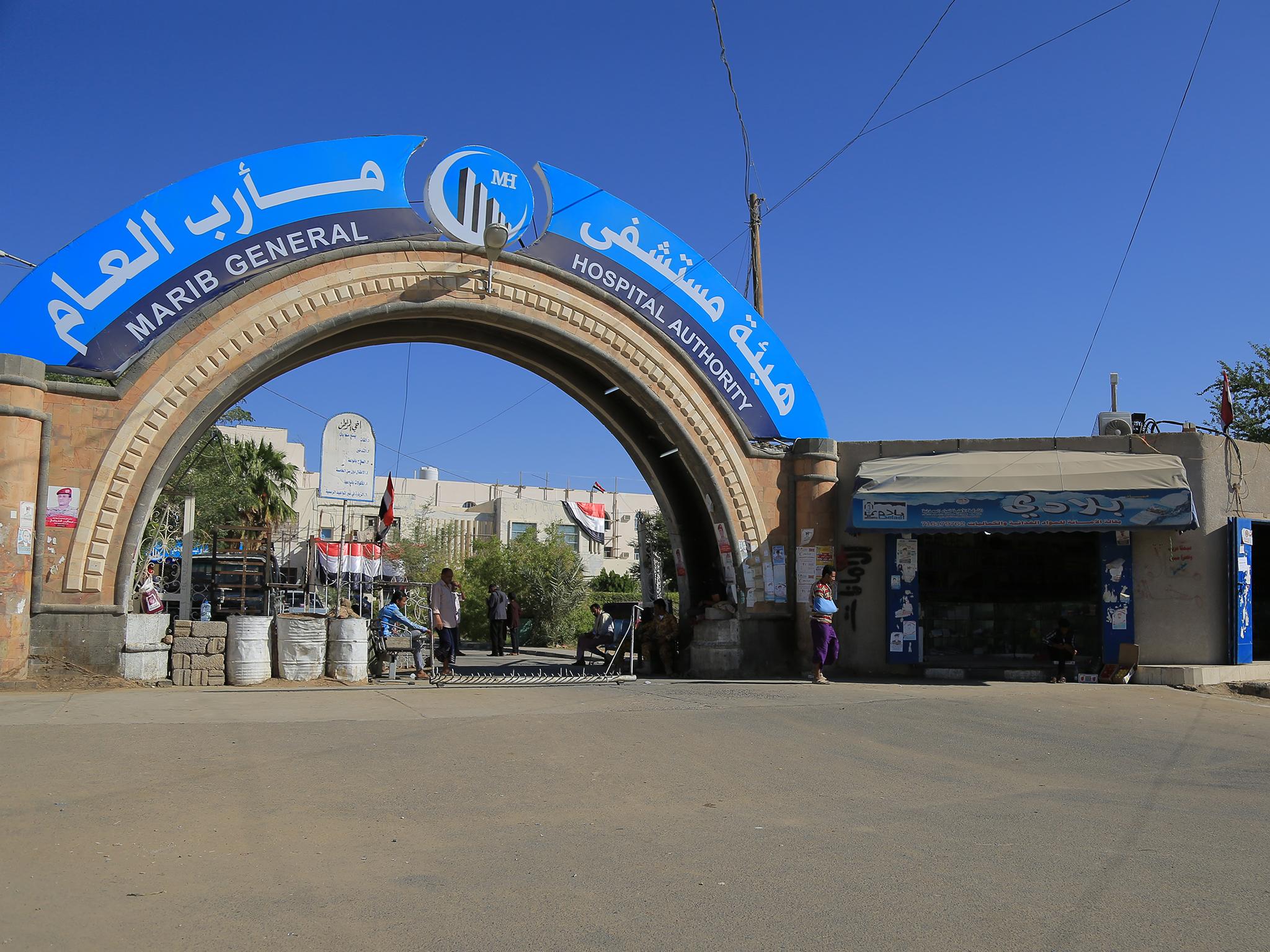
“We knew she was going to die. We just wanted it to have been an easier and better death,” her brother said in an interview with The Independent, which gained rare access to report from inside Yemen earlier this month.
No more than a handful of foreign reporters have been able to shine a light on this forgotten conflict since it began almost three years ago.
The factors that led to Jabrah’s death illustrate the hardships forced on a country buffeted by the competing interests of Saudi Arabia and Iran.
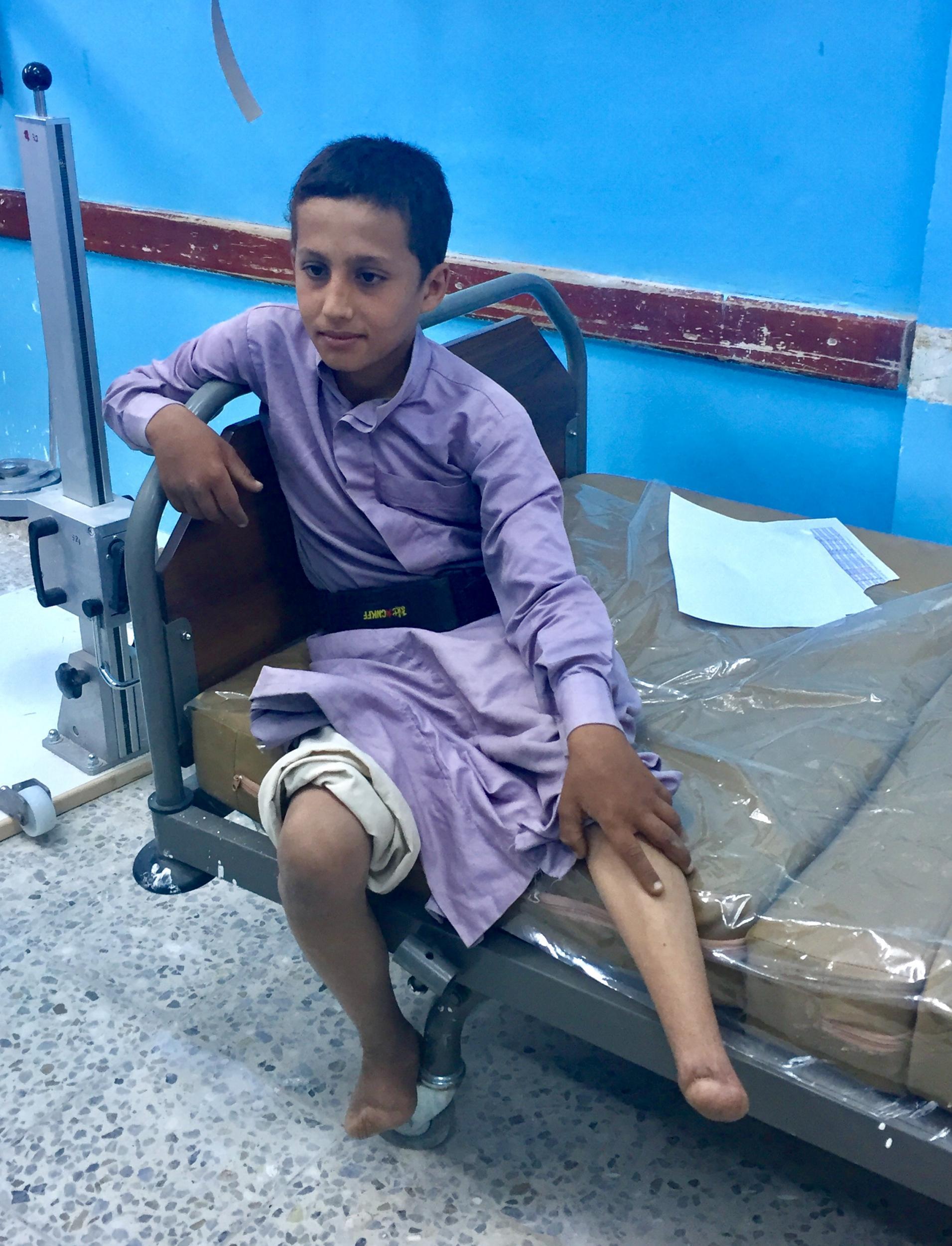
Marib General Hospital is the best health facility in the only province that has managed to prosper during Yemen’s war – yet even in the relatively well supplied, government-loyal town, medical services are cracking under the strain of a war where in many places, the front lines have cooled to a stalemate.
On the hospital’s roof, countless bullet holes and damage to a wall hit by a Houthi rocket serve as reminders that in this fight, both sides have targeted civilian infrastructure.
Inside, the same bullet hole-riddled walls are wet with damp, and in one corridor a puddle of unidentified liquid reflects the daylight from a nearby window.
Landmines are killing and maiming so many that three rooms at Marib General are now a dedicated prosthetics workshop; in recent months up to 16 people a week have been admitted needing amputations.
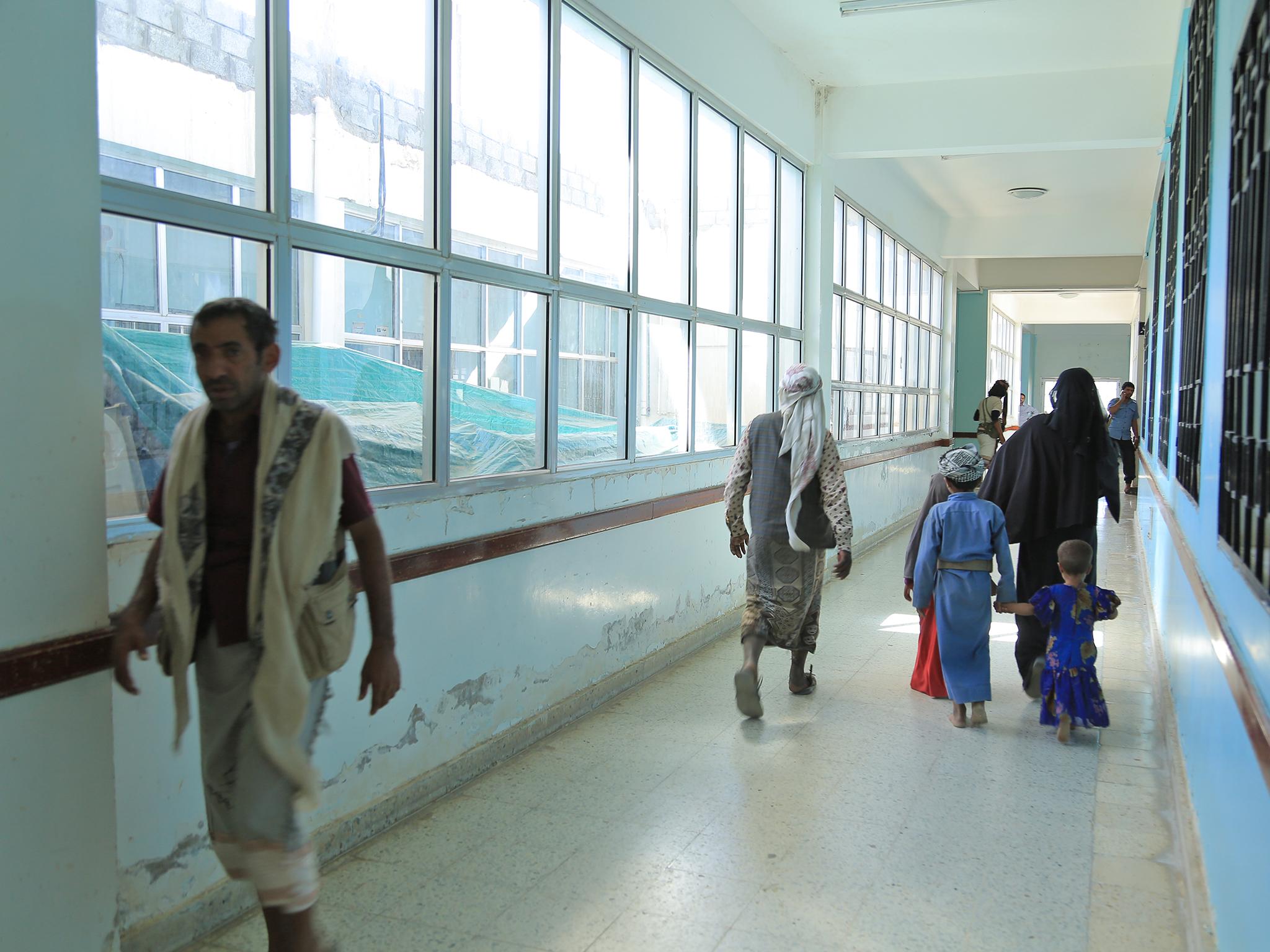
Many of the 120 beds available are occupied by soldiers injured at the frontline – and every two or three months, treating troops hurt in big Houthi offensives takes up almost all of the doctors’ time.
The hospital’s director, Mohammed al Qobati, said that most treatment was provided for free, but even he admits that resources and certain drugs are scarce.
Outside in the courtyard, 22-year-old Abdul Rahman al Subari, sitting in a wheelchair, was among several others waiting to be seen by staff for complications arising from a traffic accident. He did not know how much the visit would cost. “Sometimes I find a doctor, sometimes I don’t,” he said.
The price of prescription drugs – which cost Mr Subari 2,500 rials (£7.60) last time – has also begun to bite in a country where GDP reached a record low of £515 in 2016, and has only decreased since.
With the country’s airports as well as land and sea borders controlled by neighbouring Saudi Arabia, unlike the conflict in Syria, Yemeni refugees have not fled to Europe in their thousands – and journalists are not getting in, either.
Without any overspill of violence and amid a media blackout, the war has remained largely invisible to the outside world.
Inside Yemen’s borders, internally displaced persons from the rest of the country have fled to Marib to make new lives for themselves in a town that is relatively calm and stable thanks to oil reserves and the political clout of its governor, influential tribal leader Sultan al Aradah.
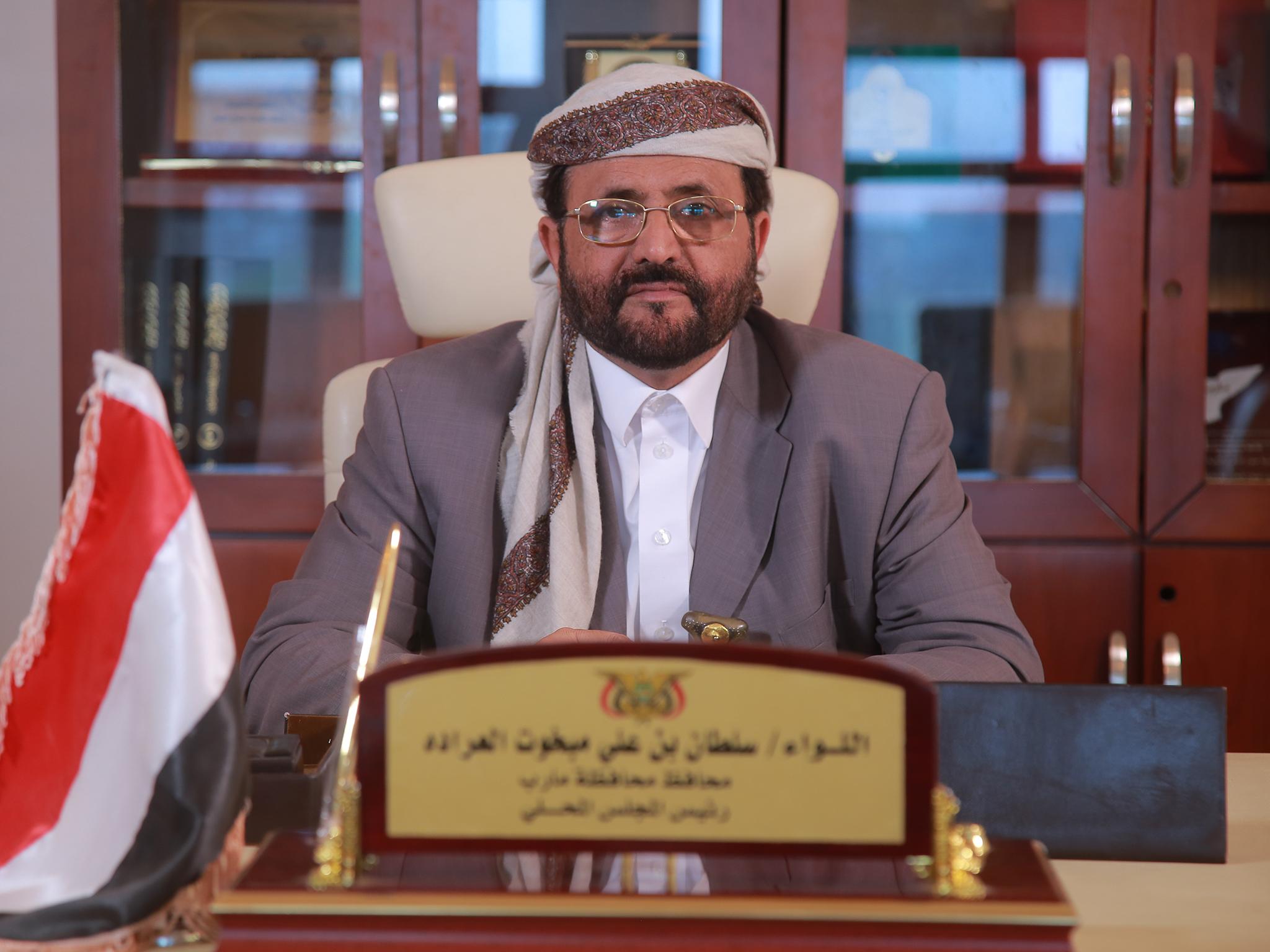
With the province largely secured from the Houthis, he now commands forces focussed on the threat of al Qaeda.
Mr Aradah hosted a group of foreign journalists on a visit organised by the Sanaa Centre for Strategic Studies, an international research group seeking to raise awareness of the situation in Yemen – in part to showcase his power and Marib’s boom.
But the impact of the war can only be blunted up to a point, even in Marib, where US drone strikes and raids targeting al Qaeda have killed civilians.
And behind the Houthi frontlines, the humanitarian situation is far worse.
“[An] environment of impunity has surrounded and protected Saudi aggression from March 2015 until today,” said Sherine El Taraboulsi-McCarthy, a research fellow at the Overseas Development Institute.
“The humanitarian situation is far worse now and likely to be more protracted; more loss of life, more frustrated youth finding a safer space in terrorist groups and more destruction in (sic) Yemen’s infrastructure.”
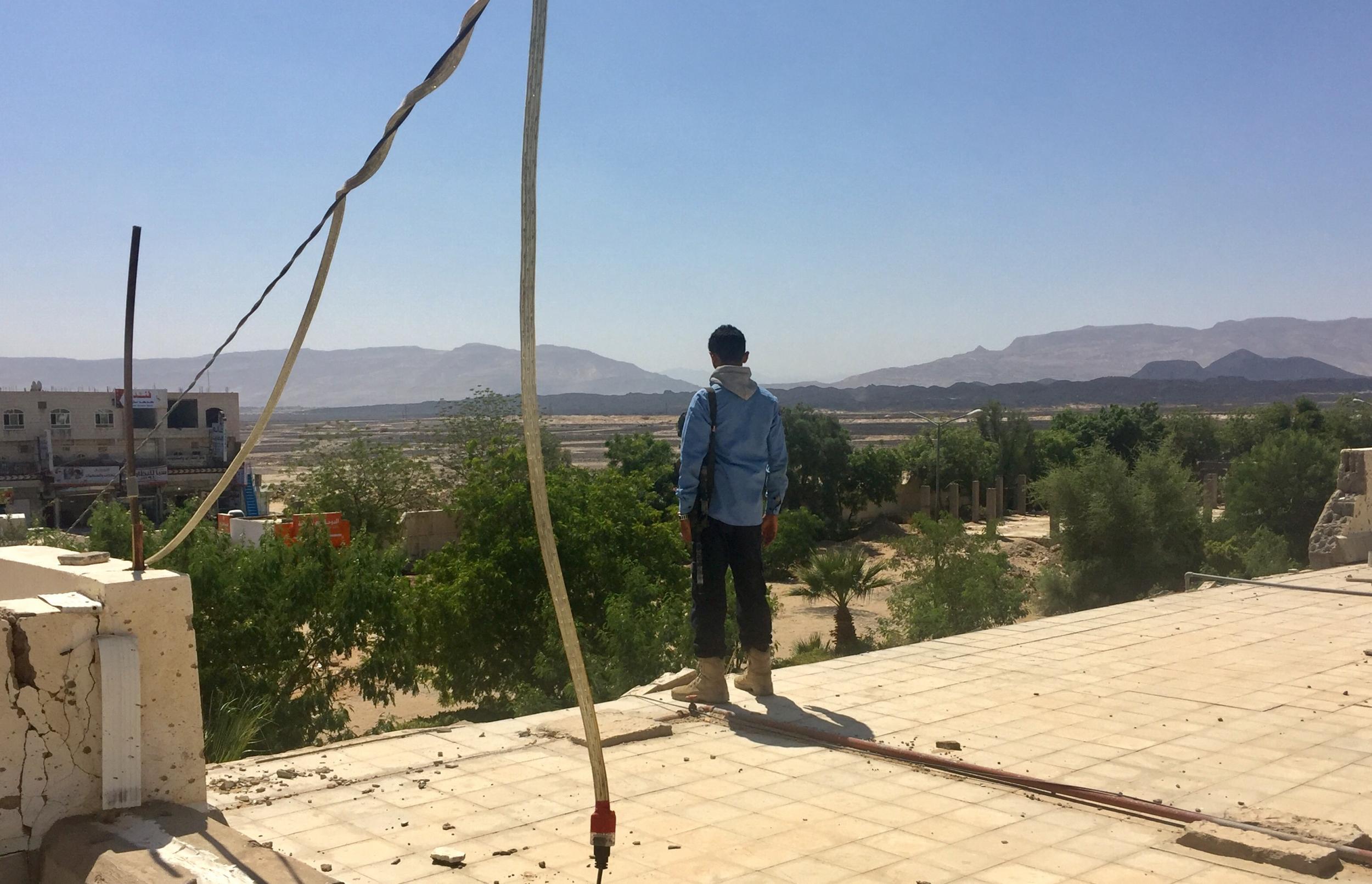
Yemen’s internationally backed government – which operates in exile from Riyadh – relies heavily on Saudi and UAE airpower, ground forces and funding in its fight against both extremist groups and the Iran-backed Houthis, who have control of the capital, Sanaa.
On the other side of the front line, bridges, roads and sometimes civilian buildings such as homes and hospitals have been hit in large-scale Arab coalition air strikes since 2015.
In some cases, Western governments can be fairly accused of making matters worse.
Much of the devastation has been caused by arms sold to the kingdom by allies such as the UK and US – a move that officials within Barack Obama’s administration worried could amount to complicity in war crimes.
Since Operation Decisive Storm in Yemen began, the British government has sold more than £4.6bn of bombs and missiles to Saudi Arabia, The Independent reported earlier this month. The figure represents an increase of almost 500 per cent.
Riyadh’s blockade on Yemen’s air and sea ports has prevented the import of food and medicine, leaving approximately 19 million people in desperate need of humanitarian aid and 7.3 million staring at a famine. And the country's cholera crisis – mercifully almost non-existent in Marib – is now the world’s worst ever outbreak, with one million cases expected before the end of the year.
“My own experience is that we are in a proxy war,” said powerful local sheik Ali Abdurabbu al Qadhi.
“The US and Europe could pressure Iran and Saudi Arabia to end it.
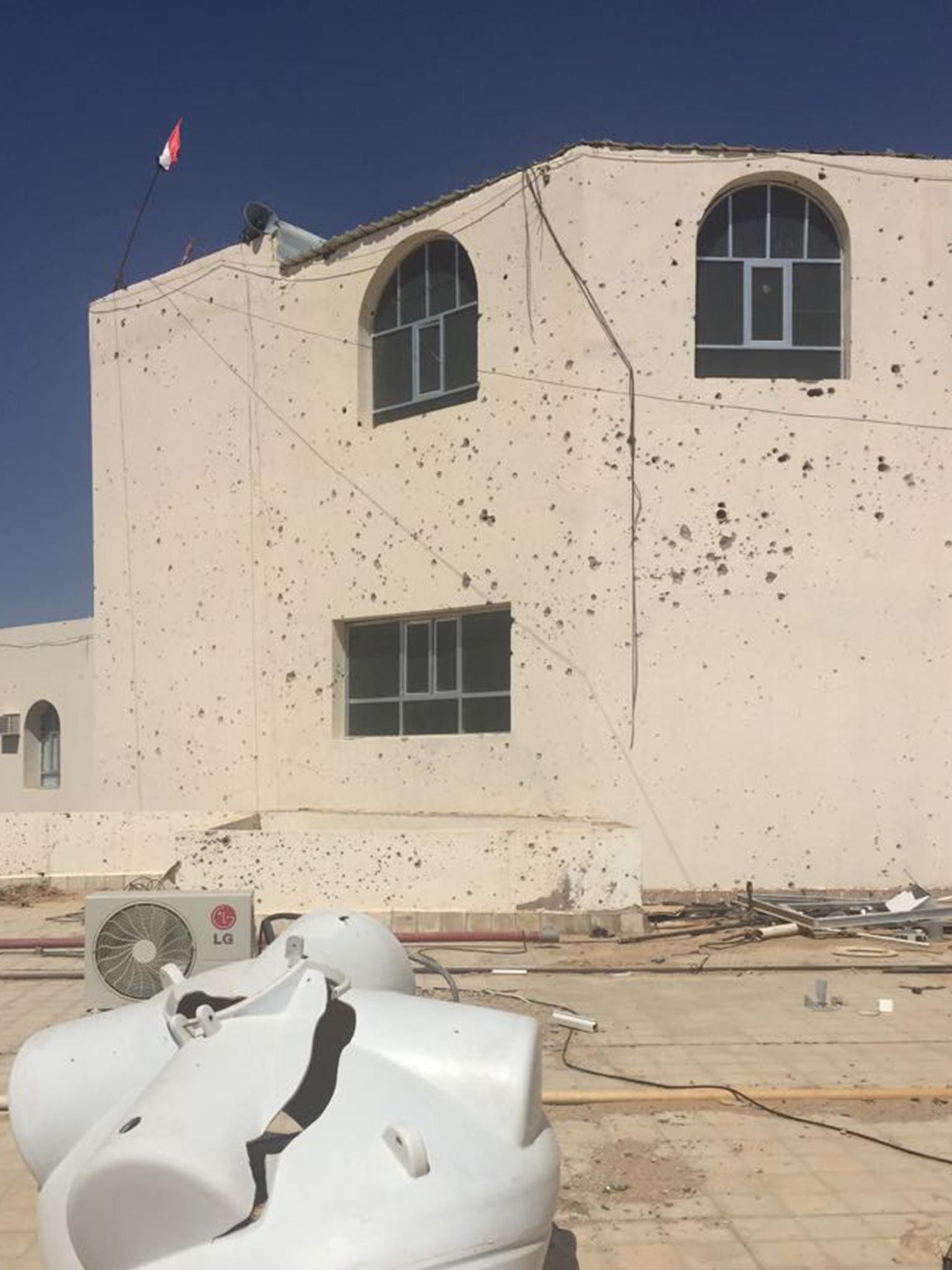
“Welcome to what is unfortunately basically a police state. The international aspect of this conflict has created this, not Yemenis,” he added.
“The ends will be decided by the beginning you choose.”
It seems barely possible, but the situation is about to get worse: as part of a series of bold moves impacting the region this week, Saudi Arabia retaliated to a 4 November Houthi ballistic missile that landed near Riyadh’s airport with a complete shutdown of even government-controlled routes in and out of the country.
The Independent eventually had to leave taking the road east to Oman, which is dotted with military checkpoints and runs through several al Qaeda hotspots.
“Yemen was already on the brink,” said Farea al Muslimi, co-founder of the Sanaa Centre.
The price of food and fuel has doubled in a few days, even in wealthy Marib.
“This was the last possible thing you could do to push Yemen off the cliff. For the first time in the war, even if you have money it makes no difference.”
On the eastern edge of town, new cinderblock building projects occupy the middle distance – but so does a new war cemetery, which contains the remains of around 1,000 people who have died in the fighting to date. Both will continue to grow so long as Yemen’s war rages.
Join our commenting forum
Join thought-provoking conversations, follow other Independent readers and see their replies
Comments